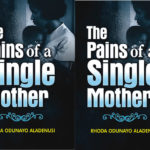THE year 2020 will continue to go down in history, as people from all over the world came to reality with the dreaded Coronavirus. Coronavirus, also known as COVID-19 is a new strain of virus that was discovered in Wuham City, China in 2019. It is a highly contagious virus that is transmitted via cough, saliva droplets, discharge from the nose and others. It resulted in the death of millions of people and was declared a pandemic by the World Health Organisation (WHO) on March11, 2020.
Countries across the globe put in place measures at combating the spread and effect of the dreaded virus. One of the measures is the declaration of a lockdown order whereby movement of people was restricted. This article however focuses on the impact of the pandemic on the preservation of tangible cultural heritage.
Cultural heritage is the legacy that is inherited from ancestors, maintained in the present and bestowed for the benefit of future generations (Admin, 2017). They can be tangible cultural heritage (such as objects, buildings, monuments and artefacts) and intangible cultural heritage (such as festivals, rituals, music and dance). Cultural heritage connects us to our past to certain social values, beliefs, customs and traditions that allow us to identify ourselves with others and bind us together in unity. Its preservation enhances continuity of our heritage to future generations, economic and social development, create employment, foster peaceful co-existence and unity, hence the need for preservation.
Two ways by which they can be preserved include preventive conservation: This is an indirect action aimed at increasing the life expectancy of objects and collections (Vantaa: 2000) which involves regular maintenance of objects and monuments in line with Venice charter, while curative conservation involves direct actions taken to treat deteriorating/ infected objects or artefacts to minimise deterioration. These procedures are usually carried out by professionals such as a conservator. However, as the COVID-19 lockdowns/restrictions affected conservators and heritage professionals, it had great impact on regular maintenance of objects, monuments, heritage site and artefacts, exposing them to dust, rodents, insects, microorganisms and fungi attack.
The impact was also felt due to absence and inadequate security personnel on ground, given rise to theft, vandalisation and illicit trafficking. Most programmes and activities aimed at preservation of cultural heritage were postponed, cancelled or held in low key. Example is the postponement of onsite inspection/ conservation work that was to be carried out in Osun Osogbo Grove in 2020.
The relaxation of the lockdown/ restrictions, which allows higher cadre officers to go back to work, even as at that, regular routine maintenance could not be achieved, as the number of conservators/ professionals on ground were few.
- Alagbe is Principal Conservator, National Museum of Unity, Ibadan.
YOU SHOULD NOT MISS THESE HEADLINES FROM NIGERIAN TRIBUNE
FALSE! Yoruba Not An Official Language In Brazil
Claim: A national newspaper and multiple online platforms claim Brazil has adopted Yoruba as its official language and that the language would be included in primary and secondary schools curriculum.
Verdict: The claim is false. The content of the article published by these online platforms is not new; it has been recirculated several times and has been debunked.
Viral Voice Note On WhatsApp Billing False
Claim: A viral WhatsApp voice note, purportedly made by the director and CEO of WhatsApp, claims users will have to start paying for WhatsApp services.
Verdict: The viral WhatsApp voice note claim is a hoax. The content is not new and has been circulated as a broadcast message several times in the past.
Marburg Virus: What You Need To Know About Disease Recently Detected In West Africa
On Monday, August 9, 2021, the World Health Organisation (WHO) confirmed the first case of Marburg virus in West Africa in Guinea. This development has sent shivers down the spines of West Africans who are still grappling with the effects of the coronavirus pandemic. But before this dreaded disease is greeted by rumours and misinformation, here is what you have to know about the virus.
FACT CHECK: US Did Not Give Nigeria 48 Hours Ultimatum To Detain Abba Kyari
CLAIM: Several social media posts claim the United States of America (USA) gave Nigeria’s Federal Government 48 hours to detain suspended Deputy Police Commissioner, Abba Kyari, or face severe sanctions.
VERDICT: The claim is false and misleading. The US did not give Nigerian Federal Government 48 hours ultimatum to detain Abba Kyari.
WATCH TOP VIDEOS FROM NIGERIAN TRIBUNE TV
- Let’s Talk About SELF-AWARENESS
- Is Your Confidence Mistaken for Pride? Let’s talk about it
- Is Etiquette About Perfection…Or Just Not Being Rude?
- Top Psychologist Reveal 3 Signs You’re Struggling With Imposter Syndrome
- Do You Pick Up Work-Related Calls at Midnight or Never? Let’s Talk About Boundaries






